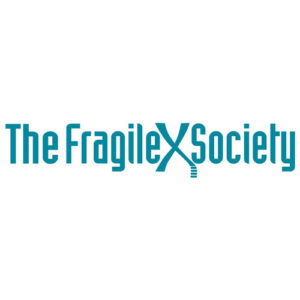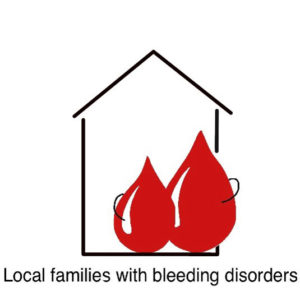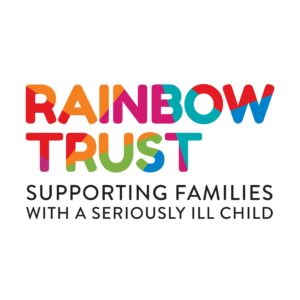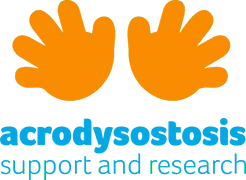
Acrodysostosis Support & Research
Acrodysostosis is a rare genetic disorder characterized by skeletal malformations, growth delays, short stature and distinctive facial features. Some children and young people diagnosed with the condition have varying degrees of intellectual disability. Another characteristic of the disease is a resistance to certain hormones that occur naturally in the body.
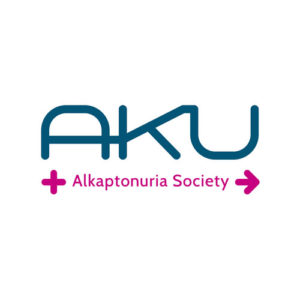
The Alkaptonuria (AKU) Society
Alkaptonuria, also known as AKU or Black Bone Disease, is an extremely rare genetic condition that stops patients’ bodies from breaking down a chemical called homogentisic acid (HGA) which the body naturally produces during the digestion of food. Due to this, HGA builds up in the body and, over time, leads to black and brittle bones and cartilage, and early onset osteoarthritis. The build up of HGA in the body can also lead to other, sometimes more serious health complications
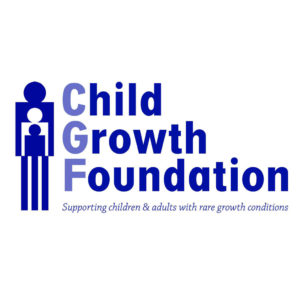
The Child Growth Foundation
The Child Growth Foundation provides information, advice and support relating to all growth conditions, a large proportion of which are genetic. Smith-Kingsmore Syndrome is a genetic overgrowth condition which also results in learning difficulties, seizures and difficulties with communication and social interaction. Smith-Kingsmore Syndrome is a rare and only recently described condition.
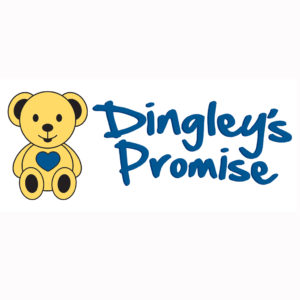
Dingleys Promise
Dingley’s Promise provides life-changing support to under five-year-olds with additional needs and disabilities, including children with genetic disorders. The Dingley’s Promise Centres support children with a range of additional needs – including visual impairment, speech and language delays, low muscle tone, developmental delays and delayed gross motor skills.
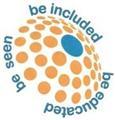
Down Syndrome Training and Support Ltd
There are approximately 11,625 children living with Down syndrome in the UK. Each one has some degree of learning disability and many have heart defects, hearing/vision difficulties, diabetes, and thyroid problems. Friendships and a social life can be hard to find for these children. Down syndrome Training and Support aims to improve the education, development and inclusion of people with Down syndrome.
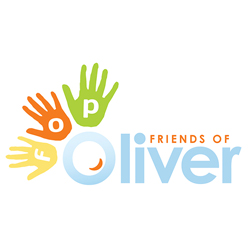
FOP Friends
Fibrodysplasia ossificans progressiva (FOP) is one of the world’s rarest genetic conditions, affecting just one in 2 million people. A child with FOP progressively experiences their muscles, ligaments, tendons and connective tissues turn to bone, and over time their healthy mind becomes locked inside a frozen body. Knocks, bumps and childhood immunisations can trigger bone growth and there is no known treatment or cure.
Fragile X Society
Fragile X syndrome is the most common known cause of inherited learning disability in boys. Affected boys experience developmental delay, difficulties with social interaction, as well as emotional and behavioural problems.
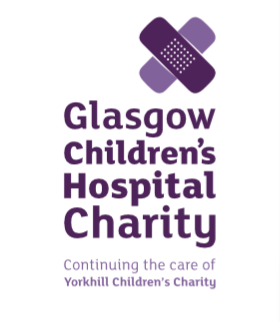
Glasgow Childrens Hospital Charity (Office of Rare Conditions)
The majority of children with rare conditions who attend the Royal Hospital for Children have a genetic disorder. These include disorders such as Prader Willi, Turner’s Syndrome and FOP. Families report feelings of isolation, frustration at lack of knowledge and expertise on the individual’s rare condition.
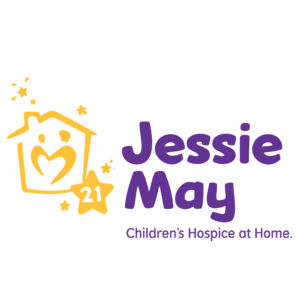
Jessie May
The charity provides specialist at-home hospice care for terminally ill children. Many of the 140 children they currently support have genetic disorders such as Rett syndrome, Barth syndrome, Zellweger syndrome and Duchenne Muscular Dystrophy. Children have complex needs including severe physical and learning disabilities plus feeding difficulties. Many require 24-hour care. None are expected to live beyond 19. Children often have prolonged stays in hospital which can be traumatic.
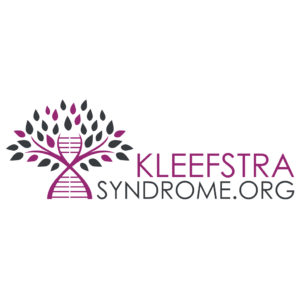
KleefstraSyndrome.org
Kleefstra Syndrome (Ks) is a rare genetic disorder characterised by learning difficulties, often accompanied by a spectrum of complex physical and clinical features. Children are most commonly delayed in their development, have delayed or no speech and low muscle tone. Some children have problems with hearing and vision, experience seizures, heart conditions, sleep and behavioural difficulties, aspiration reflux/GERD or other digestive issues.
Local families with bleeding disorders
Haemophilia is a hereditary bleeding disorder which affects the way blood clots. Children and young people are affected by internal bleeds into joints, muscles and other tissues, which can cause severe pain and have a dramatic effect on their well-being.
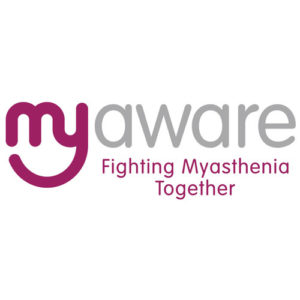
MyAware
Congenital myasthenic syndrome (CMS) is a neuromuscular genetic disorder characterised by muscle weakness that worsens with physical exertion. Affected children may experience mobility issues, owing to weakness in the skeletal muscles; problems eating, owing to weakness in the muscles used for chewing and swallowing; and problems controlling facial movement, owing to weakness in the facial muscles and muscles controlling the eyes and eyelids.

Nerve Tumours UK
Nerve Tumours is an umbrella term for three genetic conditions: Neurofibromatosis Type 1, Neurofibromatosis Type 2 and Schwannomatosis. All of the conditions cause nerve tumours. These tumours are usually non-cancerous (benign). They can be internal, or external, they can be big or small. Sometimes they cause no harm, other times they can provoke serious medical, physical and psychological conditions.
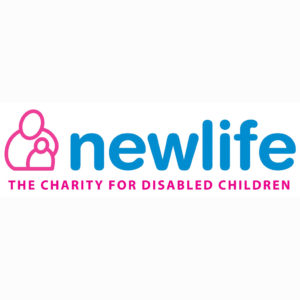
Newlife
Newlife is the UK’s largest charity funder of children’s specialist disability equipment such as pain-relieving beds, wheelchairs, car seats and portable hoists and the UK’s only provider of a national emergency equipment service for terminally ill children.
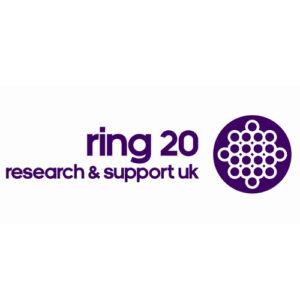
Ring 20 Research and Support
Ring chromosome 20 syndrome is a neurological genetic disorder that causes epilepsy. Affected children suffer from multiple seizures that are often prolonged and difficult to treat as they are resistant to anti-epileptic drugs. The children also experience learning disability and behavioural difficulties.

Scottish Huntingtons Association
Huntington’s disease (HD) is a genetic disorder that affects the central nervous system. It causes a progressive degeneration of the cells in the brain, which leads to gradual physical, mental and emotional changes, eventually impairing a person’s ability to walk, talk, think and reason. The condition usually develops in adulthood but around 10 per cent of those affected can show symptoms in childhood.
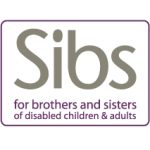
SIBS
Sibs provides support to siblings of children with genetic disorders, disabilities and additional needs. Sibs estimates that there are 400,000 siblings of children with genetic conditions in the UK. Siblings of children with genetic conditions have a need for information, understanding and support around their brother or sister’s condition.
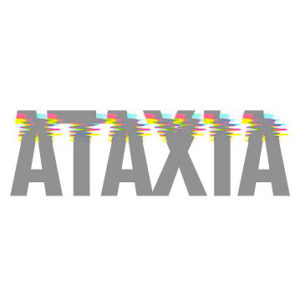
The Ataxia Telangiectasia (ATS) Society
Ataxia-Telangiectasia or A-T, is a rare and complex genetic disorder. It is often referred to as a ‘multi-system’ disorder because it affects a number of different systems within the body. It gives increasing physical disability, while deficiencies in the immune system can lead to frequent colds and infections and the gradual emergence of lung problems.
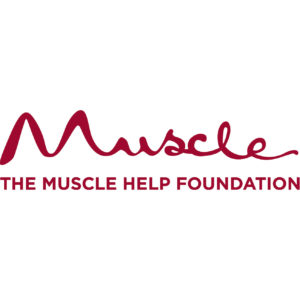
The Muscle Help Foundation
Muscular Dystrophy (MD) refers to a group of genetic, hereditary diseases that weaken muscles in the human body. MD is characterised by progressive skeletal muscle weakness, defects in muscle proteins and the death of muscle cells and tissue. Most conditions are progressive but the prognosis for sufferers differs according to the type and progression of the disorder. Some cases may be mild and progress slowly over a normal lifespan. Others produce severe muscle weakness, functional disability, and loss of the ability to move parts of the body.
The Rainbow Trust Children’s Charity
The Rainbow Trust Children’s Charity provides emotional and practical support to children and young people with a life threatening or terminal illness, including genetic disorders. They also provide emotional and practical support to their siblings, parents and carers.
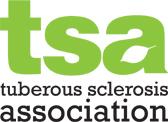
Tuberous Sclerosis Association
Children with Tuberous Sclerosis Complex (TSC) can develop growths (in their brain, heart, eyes, kidneys, lungs or skin), renal problems, severe learning difficulties, epilepsy and behavioural difficulties. On top of these health implications, the complications associated with this condition can be also extremely concerning and frightening for those affected..
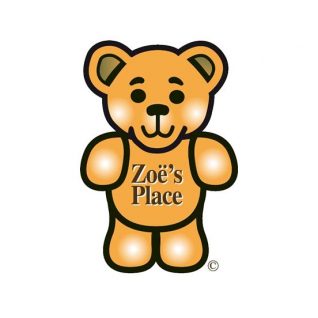
Zoe’s Place Coventry and Liverpool
Zoe’s Place provides respite, palliative and end of life care for babies and young children aged five and under with a life-limiting or life-threatening condition. All require 24 support on a one-to-one basis. The majority of children attending Zoe’s Place are there for respite care, which gives their parents a chance to recharge their batteries or spend time with their other children. Nurses care for children with conditions including Batten Disease, Muscular Dystrophy and Spinal Muscular Atrophy.

